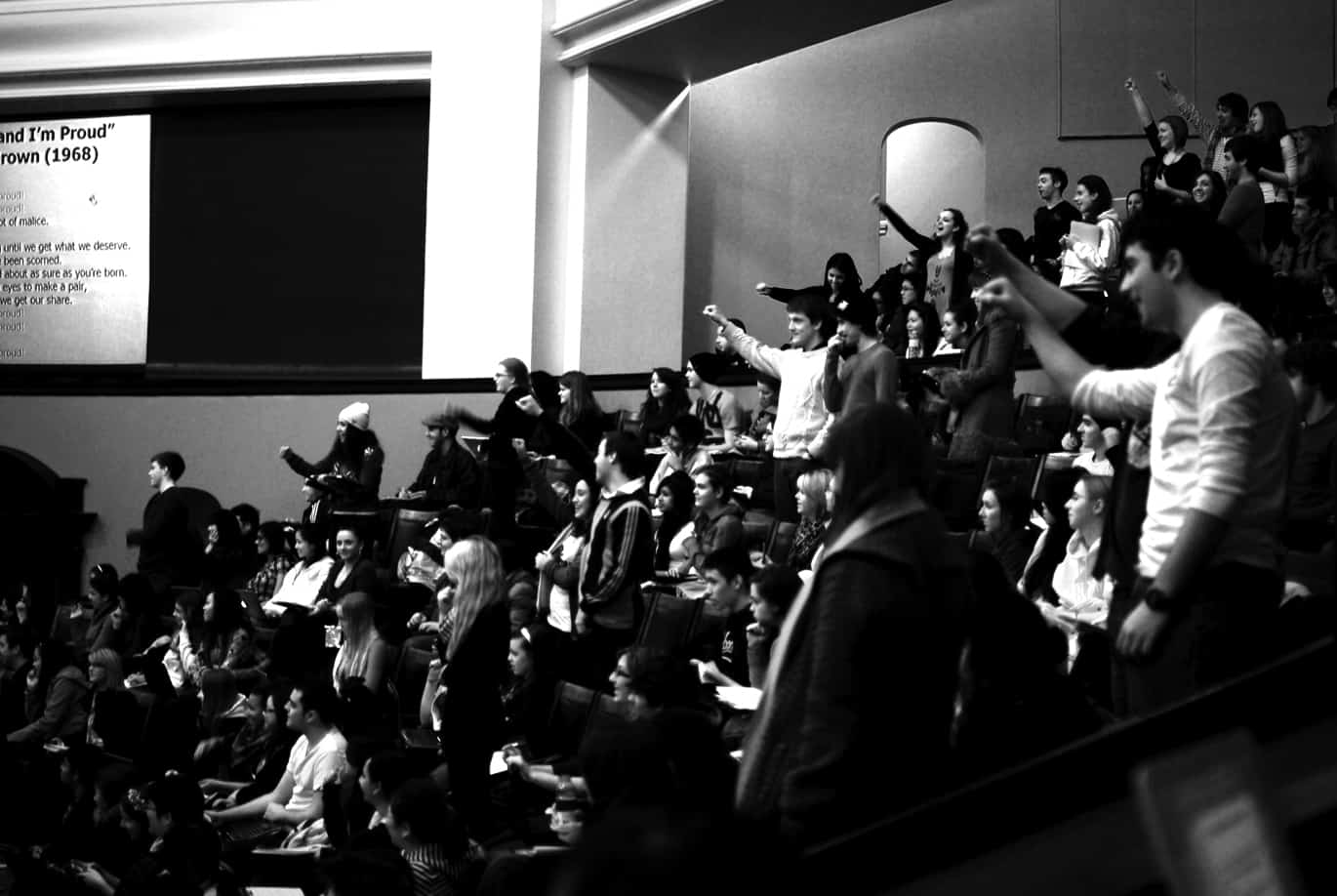The bitter truths about U of T’s undergrad experience came to light in two reports issued by vice-provost, students, Jill Matus.
The 2010 and 2011 reports, entitled “In Their Own Words: Understanding the Undergraduate Student Experience at the University of Toronto” and “Response to In Their Own Words: Best practices & strategies for enhancing the student experience at the University of Toronto” respectively assessed the quality of student life at U of T and recommended programs to enhance student experience.
Students complained about the university’s unsupportive campus environment, lacking co-curricular student engagement, and an unsatisfactory undergraduate experience.
Matus and assistant vice-president of student life Lucy Fromowitz said that students were also concerned about limited interaction with faculty due to large class sizes. They added that statistically, smaller seminars such as the Vic One program tend to be more successful in building student-faculty relationships.
“I had personal relationships with all of my Vic One professors, which I know for a fact is a lamentably rare occurrence at U of T, especially in first year,” said fifth-year student Emily McNally.
Students also complained that more academic support systems across the campuses are needed. UTM students, according to the 2010 report, are concerned about long wait times and confusion among registrars’ offices, program offices, and Admissions & Awards.
“It gets pretty busy, especially during the first week of school — there’s even a waitlist,” confirmed third-year UTM student Ibrahim Kitine.
Kitine said that the long wait times often discourage students from seeking advisors as there can be up to 30 people waiting and only two advisors on duty.
“You either have to figure out [your questions] on your own or risk asking older students because you don’t know how accurate their advice may be,” he continued.
Furthermore, students expressed frustration in grading practices implemented at the university.
“I am proud of my education and achievements at U of T. However, especially in my first couple years of my undergrad, I often felt discouraged and concerned over grades,” said Julie Kawar, a fifth-year student at St. George.
McNally agreed that more academic support is needed but noted that it’s not always accessible.
“In my experience, many professors at this school are far more interested in their own research than in the young people they teach,” she said.
Despite the grading practices, students take pride in U of T’s academic reputation but are careful to differentiate between “academic pride” and “school spirit” — which, they said, the university greatly lacks.
“As a Varsity athlete, I am very disappointed in the degree of apathy I have encountered from the general student body toward supporting their fellow students and promoting school pride,” said McNally, frustrated. “My Varsity rugby team is extremely competitive, yet we rarely have many spectators at our games.
“U of T is a school of individualists — it lacks a sense of shared experience, loyalty and community. It is an institution one attends predominantly among strangers,” she continued.
The lack of school spirit extends beyond the Varsity Arena and increases the divide between campuses.
“The student body is so large. There are three different campuses, and they are not close to one another… It’s hard to be involved across the board,” said Kitine.
Matus and Fromowitz acknowledged a “need for greater emphasis on intentional cross-divisional collaboration” and are working towards projects that create a greater sense of community.
Additionally, students blamed lack of participation in co-curricular activities on long commutes and heavy course loads.
“It takes me about an hour and a half to commute to the university, each way,” Kawar said. “I often feel that I don’t have the time to engage in student life because I have to spend so much time heading home, where I have to do homework, studying, volunteer in my area, or work at my part-time job.”
As a student continuously shuttling between UTM and St. George, Kitine said that it’s hard to get involved in co-curricular activities, but also noted that involvement is rooted in individual initiative.
“As far as participation is concerned, you have to meet it half way. In order to stand out you have to be willing to go the extra mile and get involved in your school,” he concluded.


